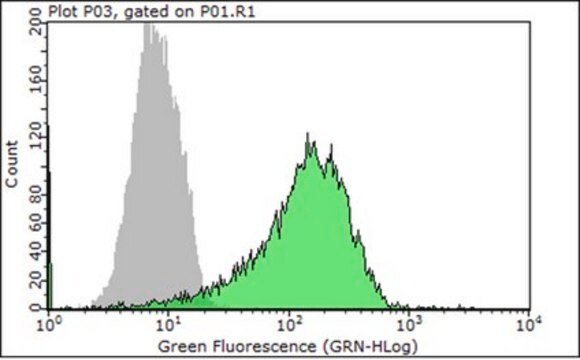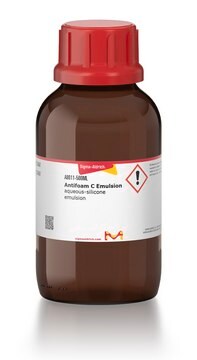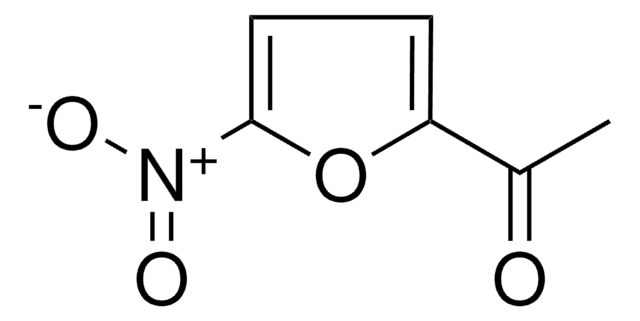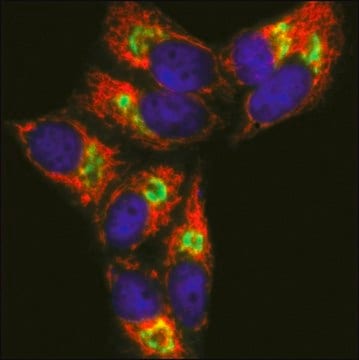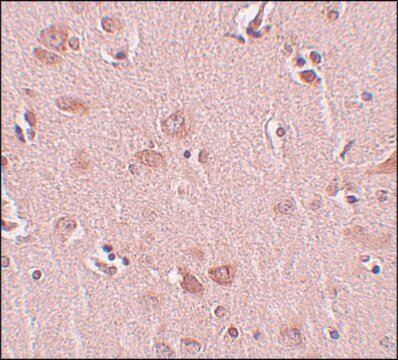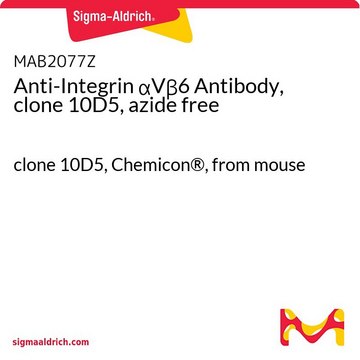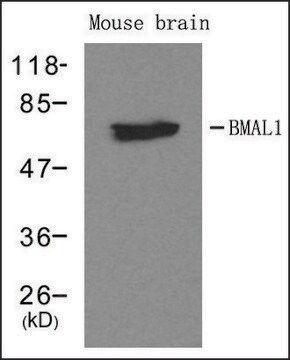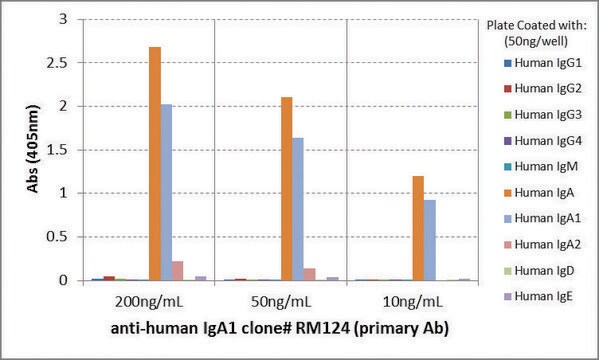MAB2060
Anti-Integrin β4 Antibody, clone ASC-9
clone ASC-9, Chemicon®, from mouse
Synonym(s):
CD104
About This Item
Recommended Products
biological source
mouse
Quality Level
antibody form
purified immunoglobulin
antibody product type
primary antibodies
clone
ASC-9, monoclonal
species reactivity
human
manufacturer/tradename
Chemicon®
technique(s)
flow cytometry: suitable
immunohistochemistry: suitable
immunoprecipitation (IP): suitable
isotype
IgG2aκ
NCBI accession no.
UniProt accession no.
shipped in
wet ice
target post-translational modification
unmodified
Gene Information
human ... ITGB4(3691)
Specificity
Immunogen
Application
EHS laminin, but not to laminin GD-2 peptide, type IV collagen or fibronectin. Does not inhibit SKOV-3 cell adhesion to laminin, fibronectin or type IV collagen.
Immunohistochemistry: on acetone-fixed frozen human epithelial tissues including tongue, foreskin and ovary. Not for use on formalin-fixed tissue.
Flow cytometry: stains human squamous cell carcinoma (SCC9), ovarian carcinoma (SKOV-3) and umbilical vein endothelium (HUVEC). Stains RKO or K562 cells transfected for CD104 expression. Does not stain monocytes, neutrophils, lymphocytes, T cells, B cells or platelets.
Immunoprecipitation: precipitates PAGE bands of 66, 76, 120, 135 and 200kDa (reduced) or 66, 110, 125, 130 and 190kDa (non-reduced) from surface-biotinylated SCC9 cells.
Working dilutions must be determined by end user.
Cell Structure
Integrins
Physical form
Storage and Stability
Other Notes
Legal Information
Disclaimer
Not finding the right product?
Try our Product Selector Tool.
Storage Class Code
10 - Combustible liquids
WGK
WGK 2
Flash Point(F)
Not applicable
Flash Point(C)
Not applicable
Regulatory Listings
Regulatory Listings are mainly provided for chemical products. Only limited information can be provided here for non-chemical products. No entry means none of the components are listed. It is the user’s obligation to ensure the safe and legal use of the product.
JAN Code
MAB2060:
Certificates of Analysis (COA)
Search for Certificates of Analysis (COA) by entering the products Lot/Batch Number. Lot and Batch Numbers can be found on a product’s label following the words ‘Lot’ or ‘Batch’.
Already Own This Product?
Find documentation for the products that you have recently purchased in the Document Library.
Our team of scientists has experience in all areas of research including Life Science, Material Science, Chemical Synthesis, Chromatography, Analytical and many others.
Contact Technical Service
